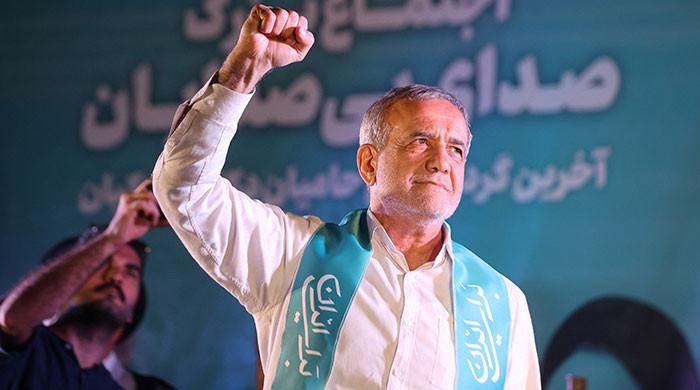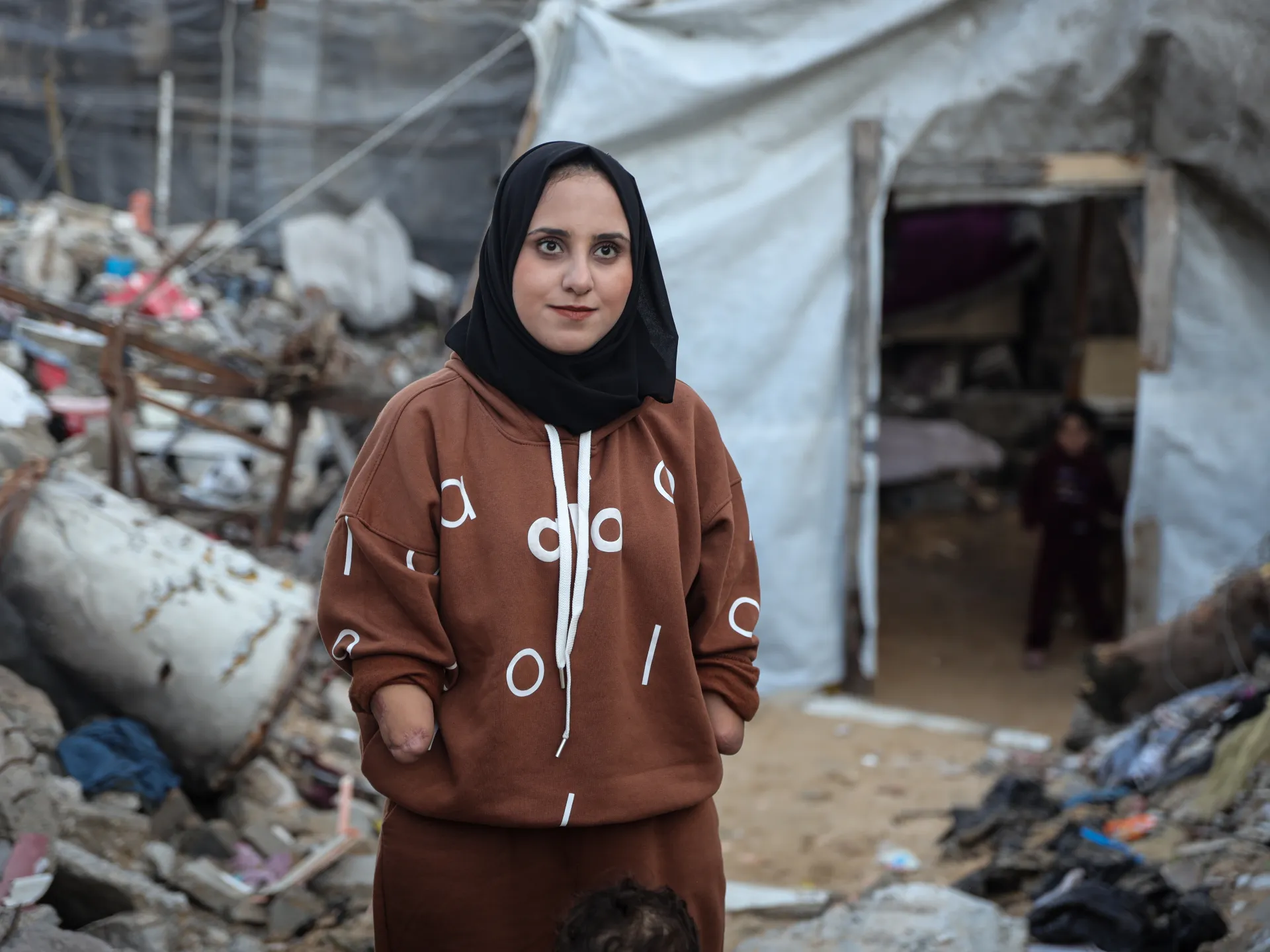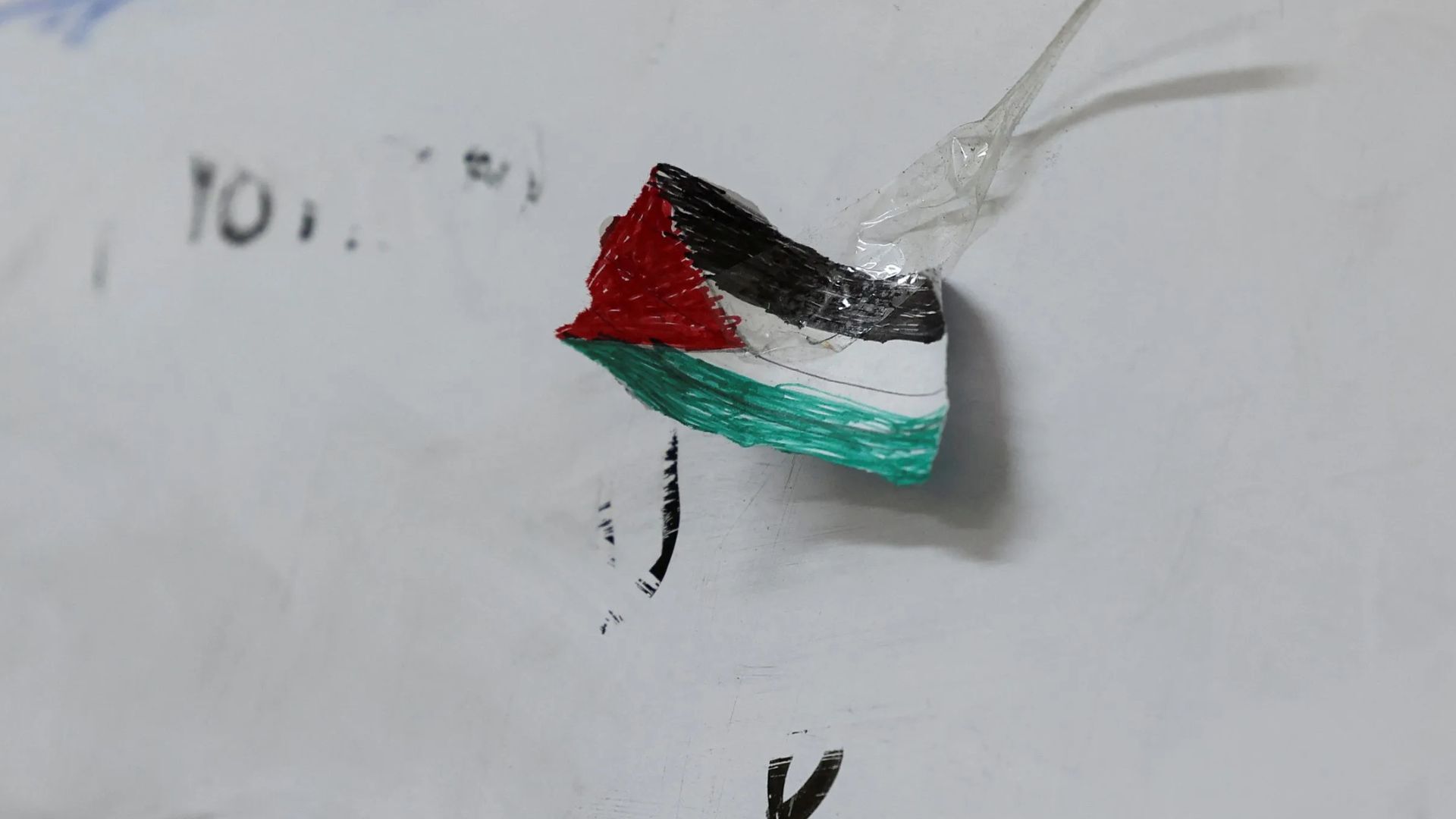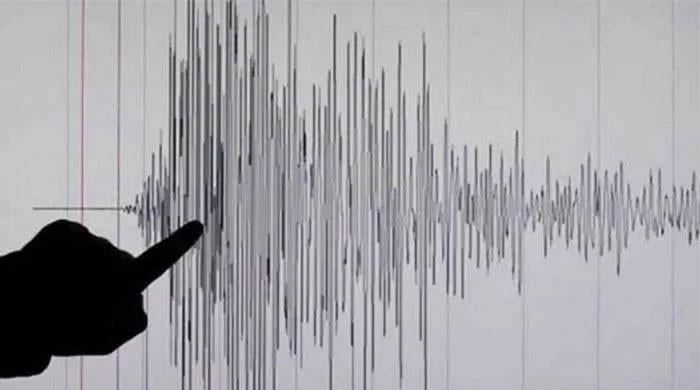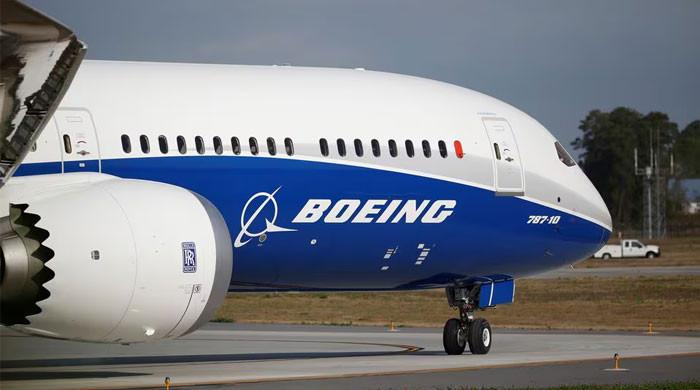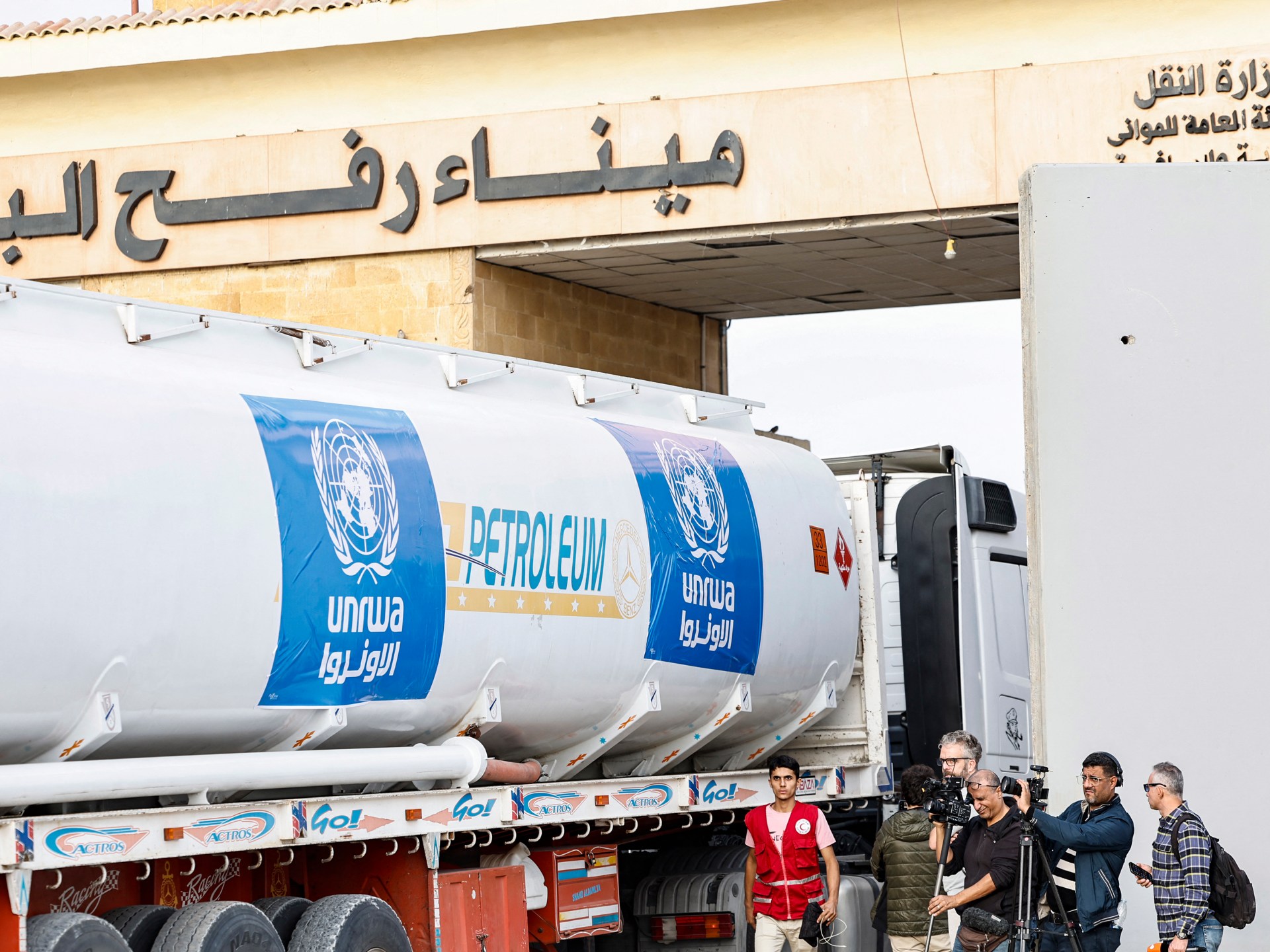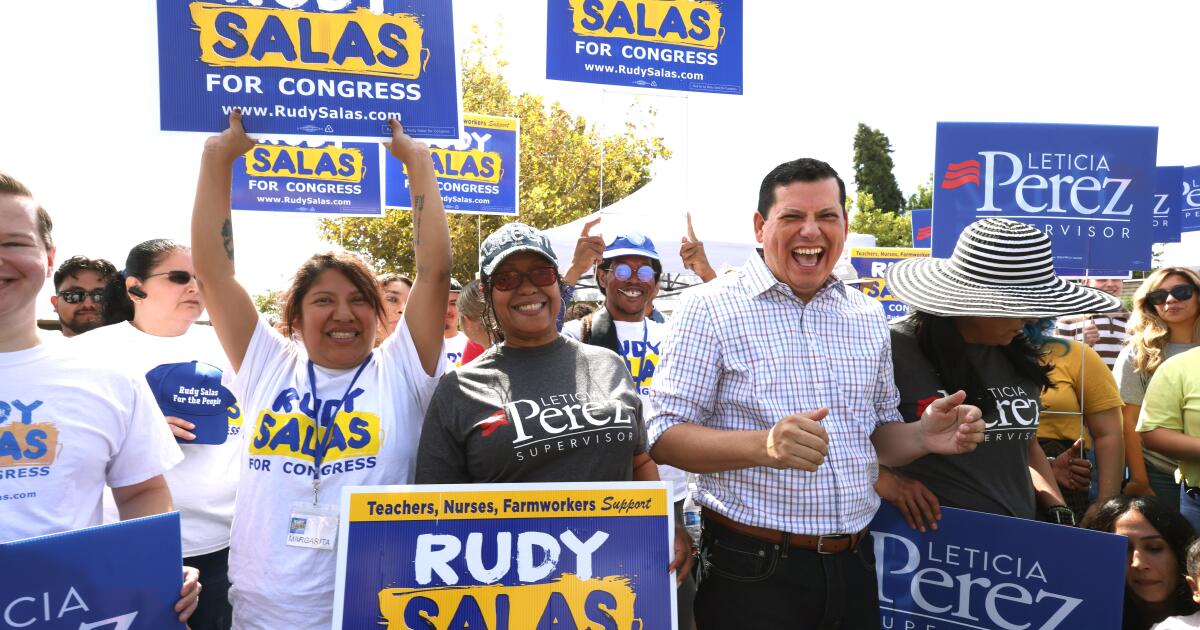- Pezeshkian gets more than 16 million votes, Jalili around 13 million votes.
- President-elect announces to extend hand of friendship to all.
- The former minister faces multiple challenges on the national and international fronts.
TEHRAN: Reformist Masoud Pezeshkian has emerged victorious in Iran's presidential election, the Interior Ministry announced on Saturday.
The election, held on Friday, saw Pezeshkian face off against Saeed Jalili in a closely contested race to become the country's next president.
With voter turnout estimated at around 50% on Friday, around 30 million Iranians cast their ballots, of which Pezeshkian received over 16 million, while Jalili got around 13 million votes, while around 600,000 ballots were declared “invalid.”
The runoff elections were announced last month after none of the four candidates managed to secure more than 50% of the vote amid a historically low turnout of around 40%, the lowest in the country's history.
In the first round of the election, Pezeshkian won the largest number of votes, around 42%, while Jalili, a conservative former nuclear negotiator who currently serves as Supreme Leader Ayatollah Ali Khamenei's representative on the Supreme National Security Council, came in second with around 39%, according to figures from Iran's election authority.
The presidential election, which was not due to be held until 2025, was brought forward after the late President Ebrahim Raisi died in a helicopter crash last month.
The elections come amid escalating regional tensions over the war between Israel (Hamas in Gaza) and Hezbollah in Lebanon, as well as increased Western pressure on Iran over its rapidly advancing nuclear programme.
'I will extend the hand of friendship'
In his first remarks since being declared the winner of the runoff, Pezeshkian said he would “extend the hand of friendship to everyone.”
“We will extend the hand of friendship to everyone. We are all people of this country. We must use everyone for the progress of the country,” said the president-elect.
A Pezeshkian win could promote a pragmatic foreign policy, ease tensions over now-stalled negotiations with major powers to revive the 2015 nuclear deal and improve prospects for social liberalization and political pluralism, analysts said.
However, many voters are skeptical about Pezeshkian's ability to fulfill his campaign promises, as the former health minister has publicly stated that he had no intention of taking on Iran's power elite, made up of clerics and security hawks.
The newly elected president is loyal to Iran's theocratic regime and has no intention of confronting powerful security hawks and clerical rulers. In television debates and interviews, he has promised not to question Khamenei's policies.
Pezeshkian has vowed to revive the ailing economy, plagued by mismanagement, state corruption and U.S. sanctions.
Who is Iran's new president-elect?
Pezeshkian, 69, is a heart surgeon who has represented the northern city of Tabriz in parliament since 2008 and had the backing of his former boss and Iran's last reformist president, Mohammad Khatami, as well as former President Hassan Rouhani.
During the Iran-Iraq war in the 1980s, Pezeshkian, a combatant and medic, was tasked with deploying medical teams to the front.
He was Minister of Health from 2001 to 2005, during Khatami's second term.
Pezeshkian lost his wife and one of his sons in a car accident in 1994. He raised his two surviving sons and one daughter alone and chose not to remarry.

